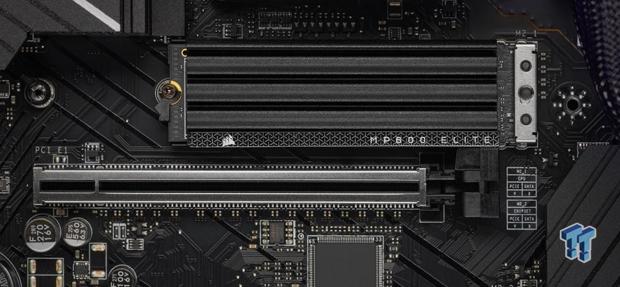
The Bottom Line
Pros
- + Gaming
- + User experience
- + Legit for PS5
Cons
- - MSRP
Should you buy it?
AvoidConsiderShortlistBuyIntroduction & Drive Details
Recently, we've seen a huge influx of Maxio MAP1602 controlled/YMTC 232L arrayed DRAMless SSDs in the consumer space. These Chinese-made SSDs have proven to be powerful and very cost-effective. In fact, the very best of their kind - having the distinction of being the first flash-based DRAMless SSDs capable of saturating the PCIe Gen4 x4 bus with over 7,400 MB/s sequential throughput.
For almost exactly one year now, these potent Chinese SSDs have dominated the consumer DRAMless SSD market, and rightly so, as to this point, they've proven to deliver the best bang for the buck in PCIe Gen4 consumer NVMe storage. Additionally, they have remained the only DRAMless SSD with enough throughput to be employed as legit PlayStation 5 M.2 storage expansion.
Well, today, we have a new challenger for consumer DRAMless supremacy. Corsair's newly minted MP600 Elite is a 4-channel DRAMless SSD that can match the throughput of its Chinese rival and deliver an even better overall user experience at the 2TB capacity point. Corsair's MP600 Elite 2TB is the first SSD we've encountered controlled by Phison's E21T successor, the E27T:
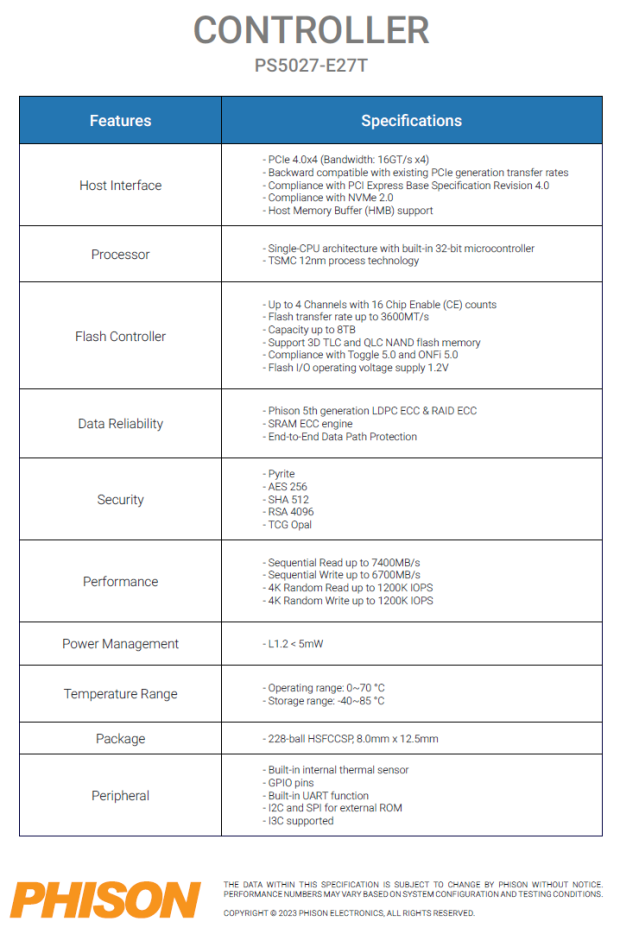
We expect to see a whole host of E27T-controlled SSDs hitting the market soon. Some, like the MP600 Elite we have on the bench today, will be arrayed with BiCS 6 TLC, and some with Micron B58R TLC.
As for today's test subject, even with no onboard DRAM, half the channels of its PCIe Gen4 flagship predecessors, this power-sipping single-sided masterpiece is overall the best-performing PCIe Gen4 SSD Corsair has ever delivered. Impressive.
7,400 MB/s throughput, power efficient, cool running and ideal for PS5 storage expansion, Corsair's MP600 Elite has a lot to offer. Now, let's get some exact numbers, shall we?
Drive Details
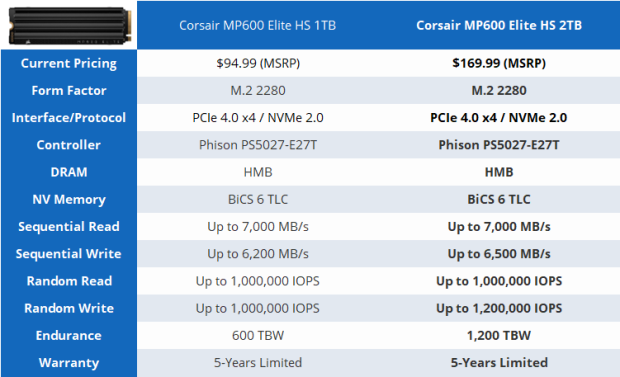
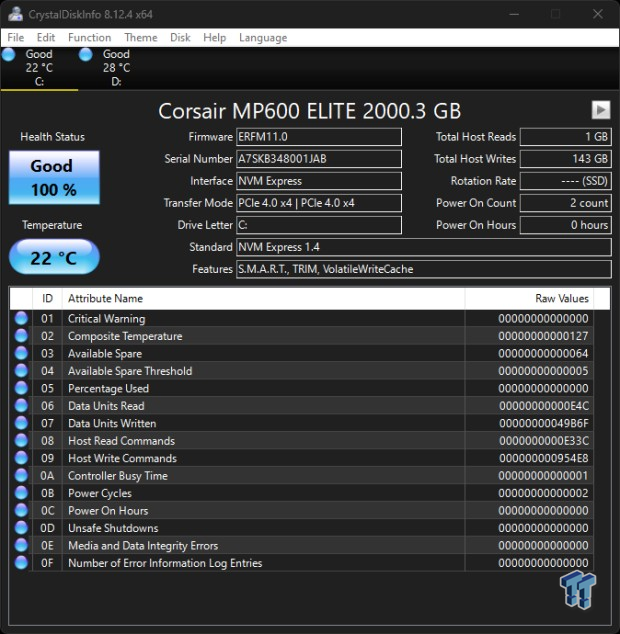
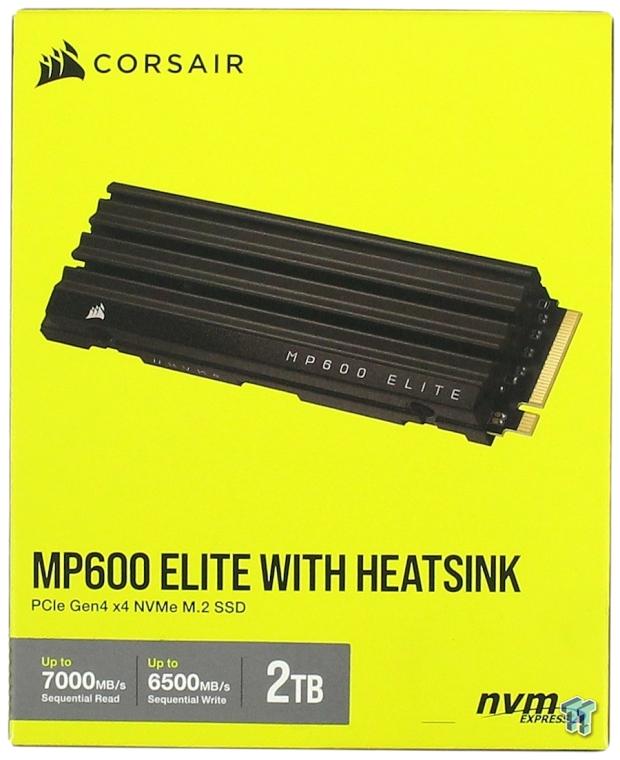
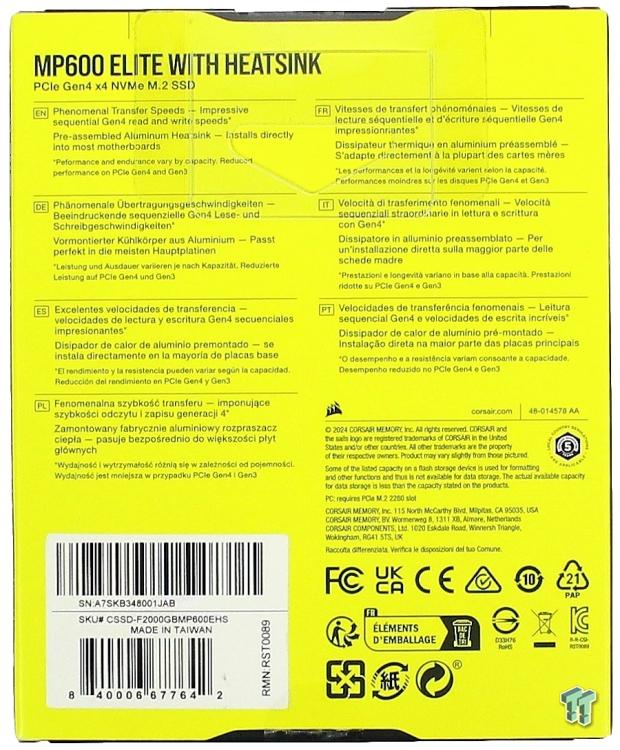


Like all CORSAIR SSDs, the MP600 ELITE is supported by free CORSAIR SSD Toolbox software, enabling convenient features such as secure erase and firmware updates directly from your desktop. Get it HERE.
Jon's Test System Specifications
Intel Test System
- Motherboard: GIGABYTE AORUS Z790 Xtreme X
- CPU: Intel Core i9-14900K - Buy from Amazon
- Cooler: Alphacool Eissturm Hurricane Copper 45 - Buy from Amazon
- RAM: Patriot Viper Xtreme 5 8000 48GB - Buy from Amazon
- Graphics Card: MSI SUPRIM X RTX 3080 12GB - Buy from Amazon
- Case: PrimoChill's Praxis Wetbench - Buy from Amazon
- Power Supply: be quiet! Dark Power Pro 12 1200W - Buy from Amazon
- OS: Microsoft Windows 11 Pro 64-bit - Buy from Amazon
AMD Test System
- Motherboard: GIGABYTE X670E AORUS Master
- CPU: AMD Ryzen 9 7950X - Buy from Amazon
- Cooler: Alphacool Eissturm Hurricane Copper 45 - Buy from Amazon
- RAM: Sabrent Rocket DDR5 32GB - Buy from Amazon
- Graphics Card: MSI SUPRIM X RTX 3080 12GB - Buy from Amazon
- Case: PrimoChill's Praxis Wetbench - Buy from Amazon
- Power Supply: be quiet! Dark Power Pro 12 1200W - Buy from Amazon
- OS: Microsoft Windows 11 Pro 64-bit - Buy from Amazon
Because we at TweakTown like to be first at everything whenever we can, we will present our storage performance results for the test subject on both 14th Gen Intel and 7000 Series AMD platforms going forward for the foreseeable future. Because Intel still delivers the best real-world storage performance, (Look Here), our running chart will continue to be Intel-based until AMD can deliver better real-world storage performance than its rival.

Sony PlayStation 5 - M.2 Storage Expansion
PS5 Read Performance
With Sony's wildly popular PlayStation 5 console now enabled for M.2 NVMe SSDs to be used as fast storage expansion, we include results for PS5 compatible SSDs we test as a part of our reviews going forward.
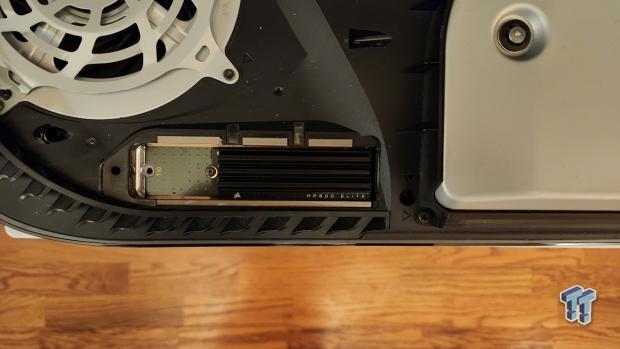
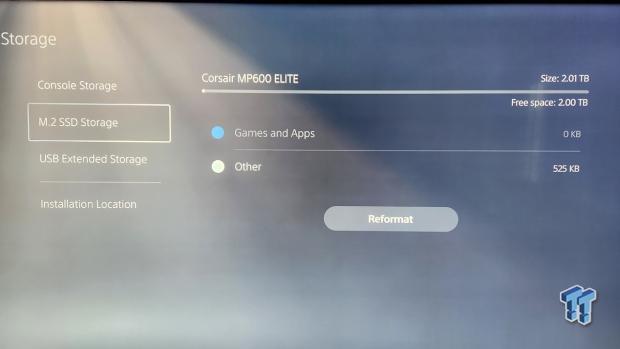
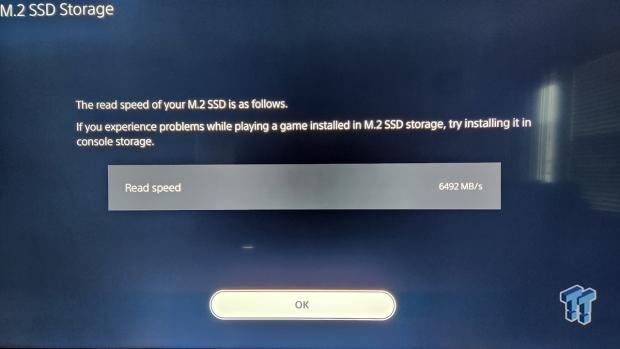
We only chart SSDs that can deliver a minimum of 5,500 MB/s read, which is Sony's original recommendation.
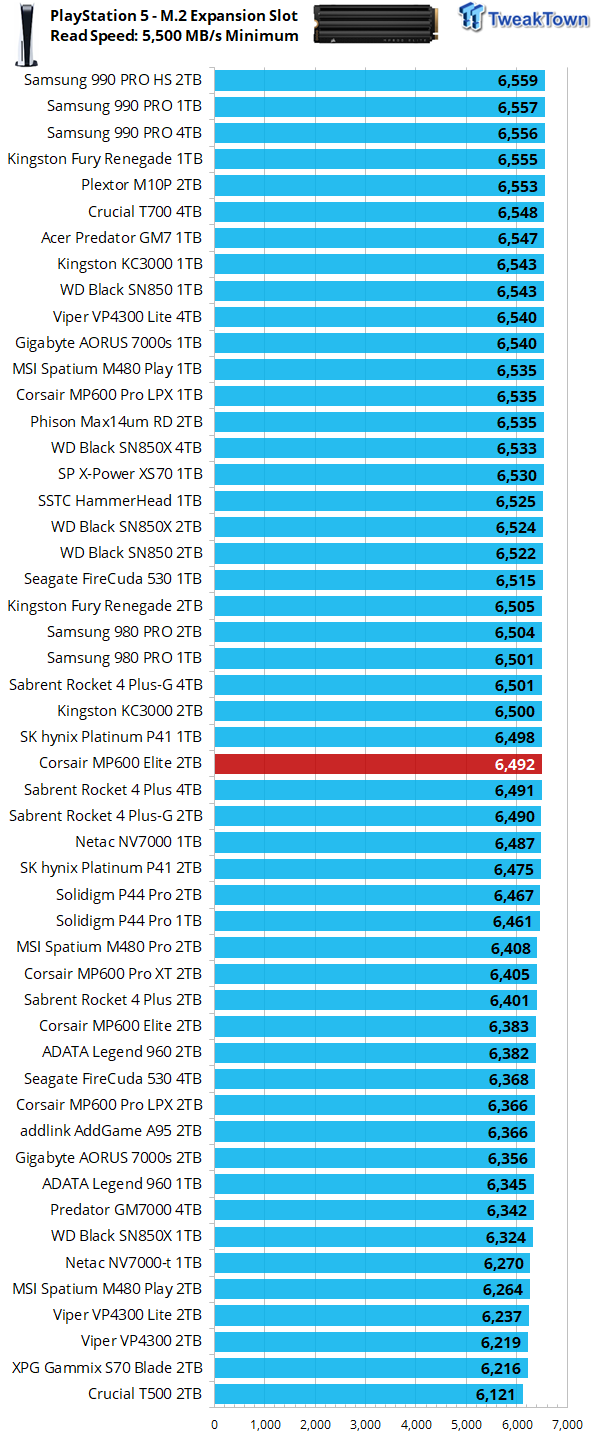
6,492 MB/s is among the best we've recorded and is a testament to the drive's potential PS5 prowess. Outstanding, as the E27T controlled MP600 Elite 2TB becomes only the second DRAMless SSD capable of delivering Sony's recommended minimum sequential throughput.
Synthetic Benchmarks: CDM, Anvil, ATTO
CrystalDiskMark
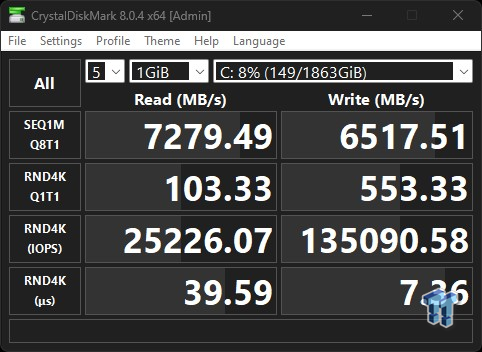
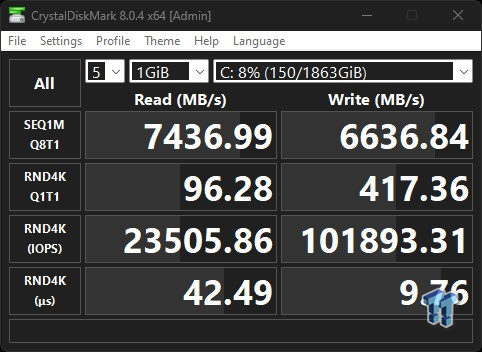
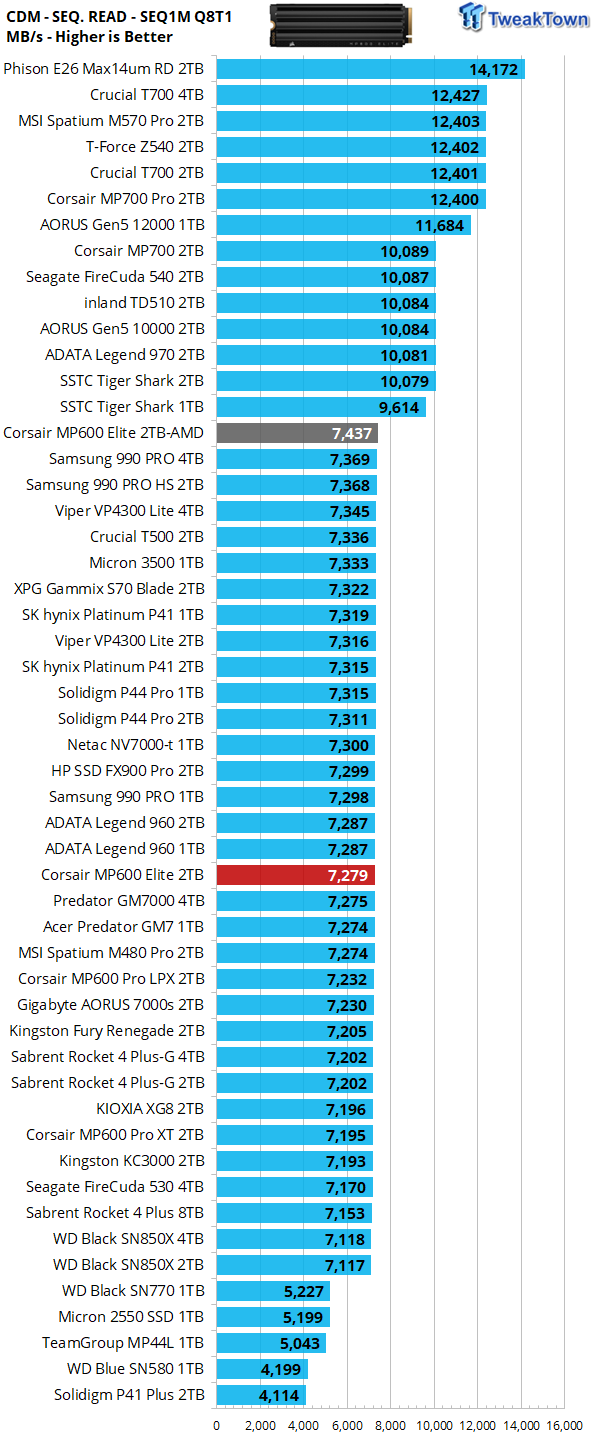
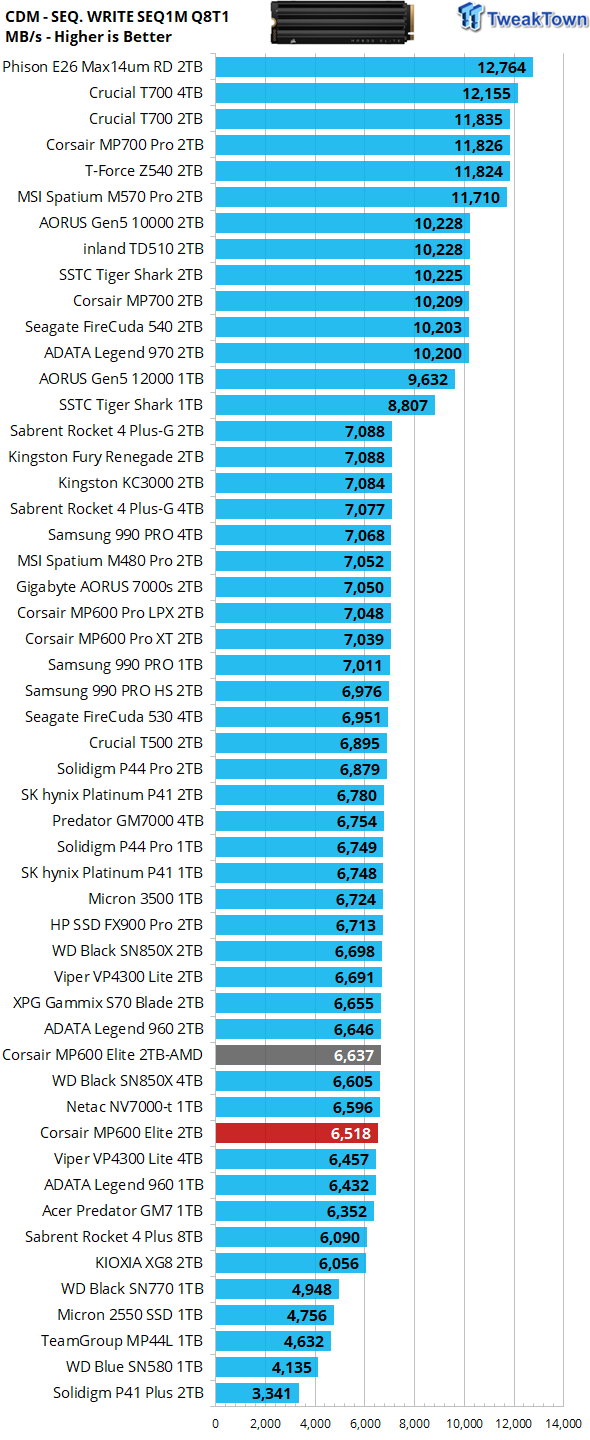
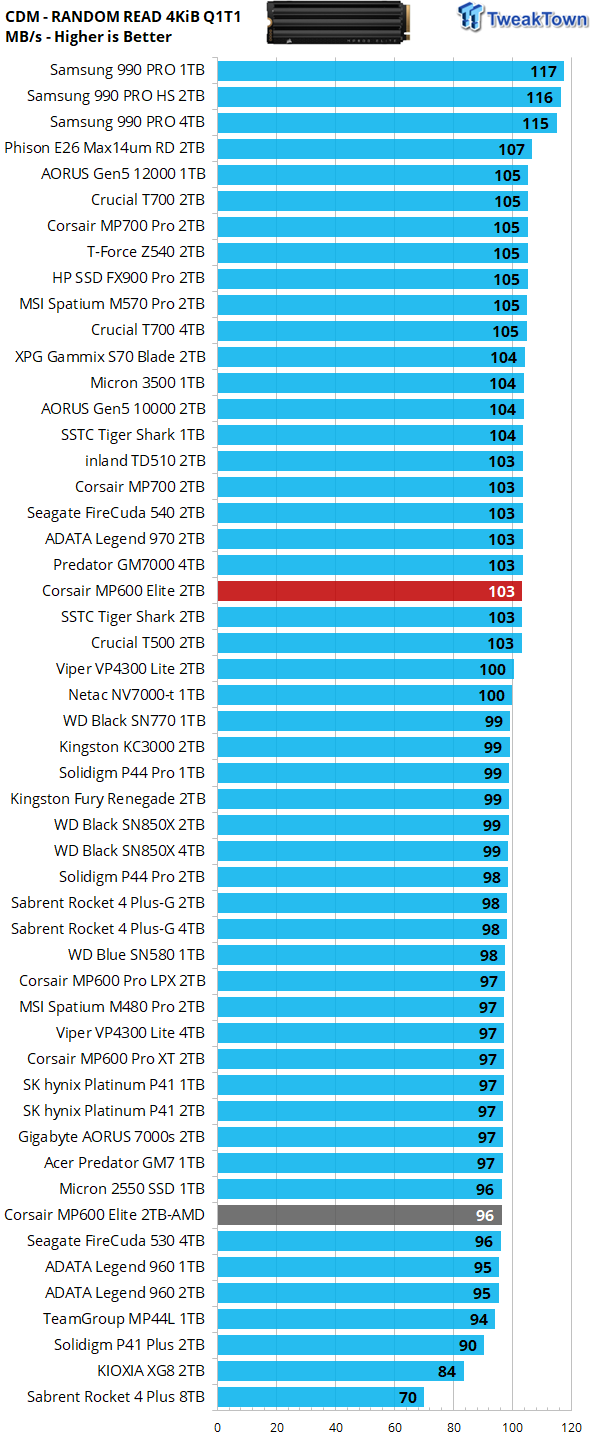
We employ CDM as our standard measurement for both sequential throughput and Q1T1 random read. Here, we find our test subject fully capable of delivering quoted up to E27T controller specifications. In terms of sequential throughput, our contender essentially trades blows with its Chinese-made competition, but that's not what we care so much about. We instead prefer to focus on Q1T1 random read, as this is where we can get a reasonably reliable synthetic indicator of real-world performance potential. The MP600 Elite 2TB delivers a head-turning 103 MB/s, the best to-date for a flash-based DRAMless SSD. Impressive.
Anvil's Storage Utilities
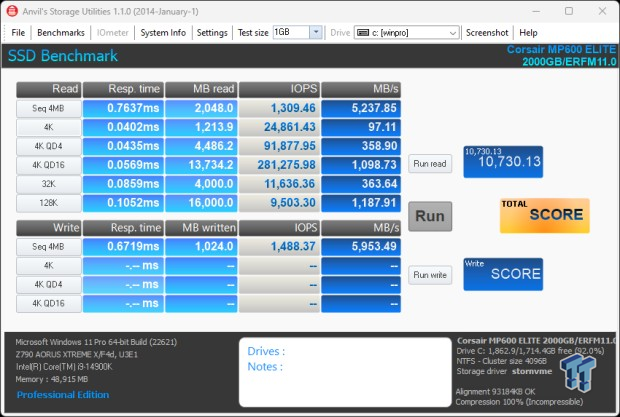
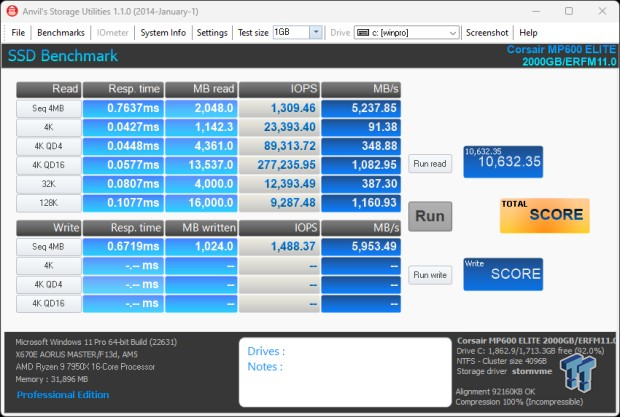
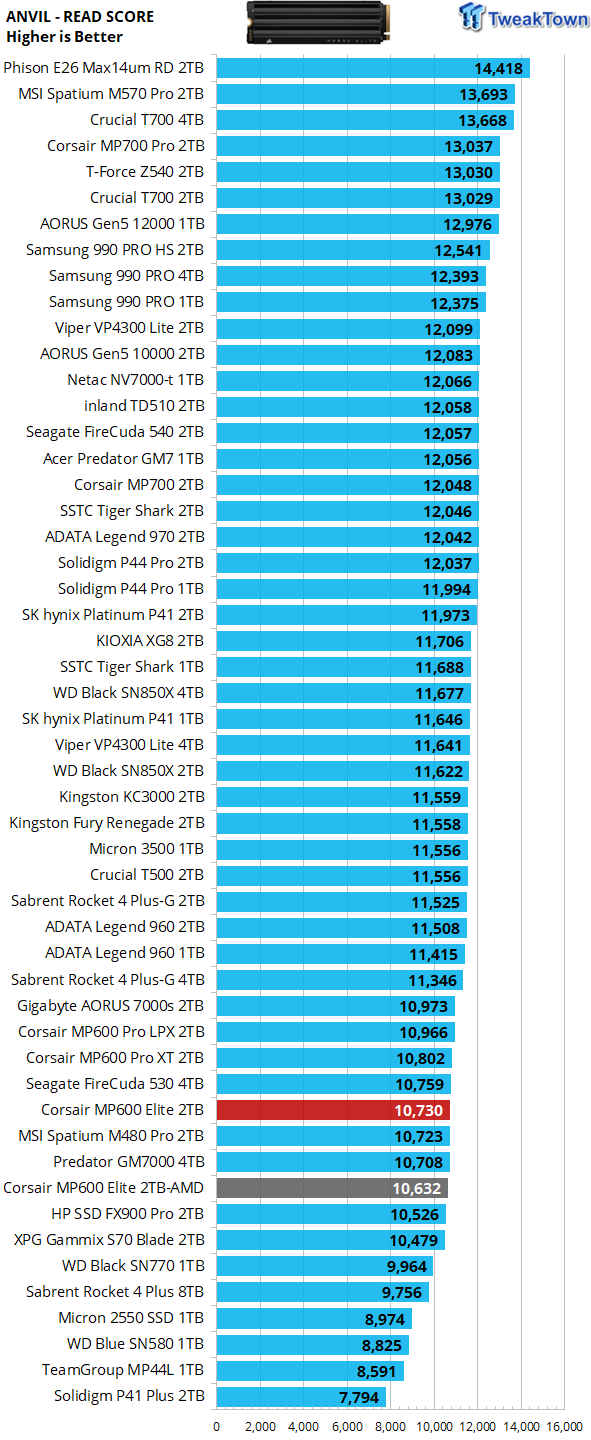
A read score of 10,700 is nothing to write home about, but it's still very respectable for a 4-channel DRAMless SSD arrayed with BiCS 6 flash.
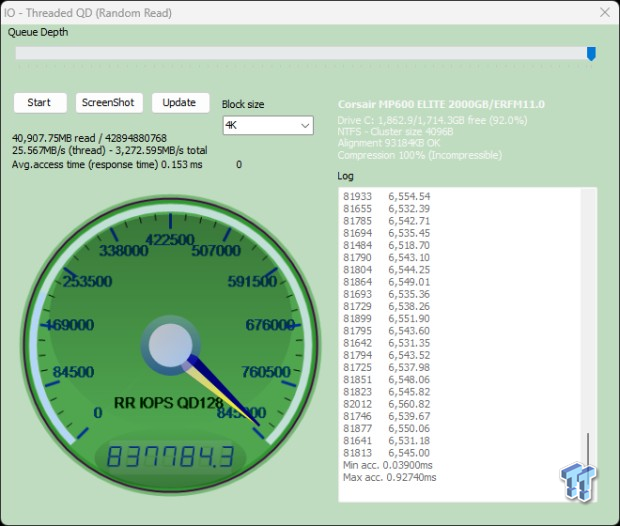
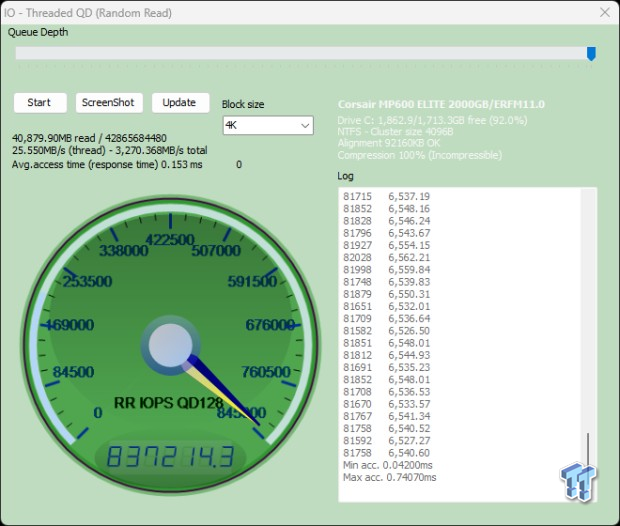
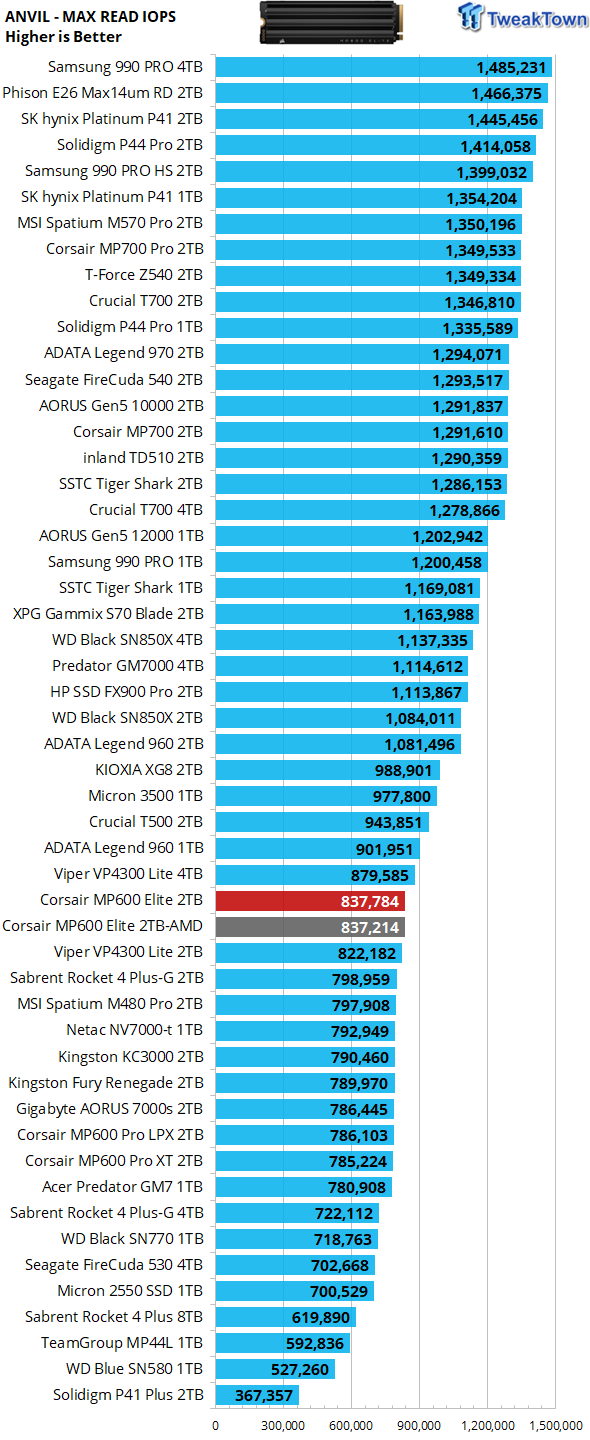
We employ Anvil's random read test as our standard for measuring max random read IOPS. This test is very accurate as it at its core is Iometer skinned over. We test at QD128. At 837K IOPS, our test subject is delivering the highest random read throughput we've ever extracted from a 2TB DRAMless SSD.
ATTO
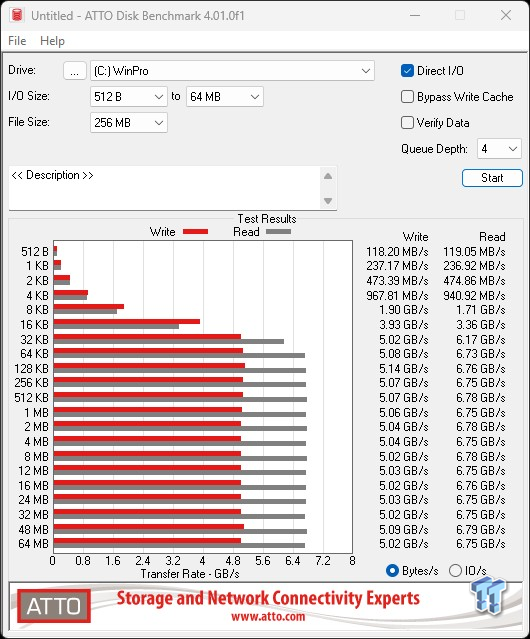
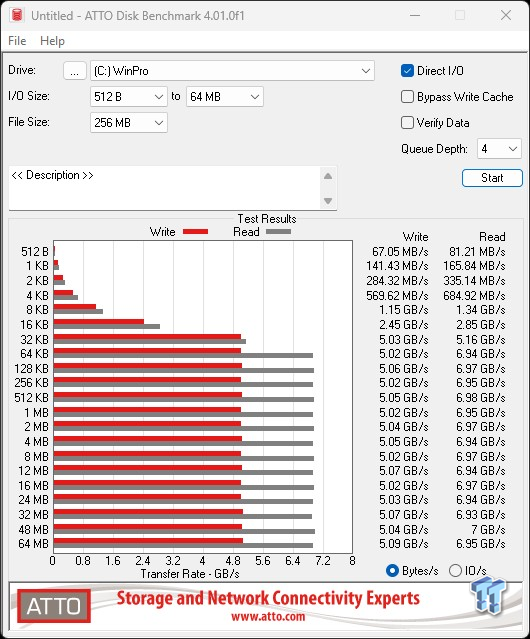
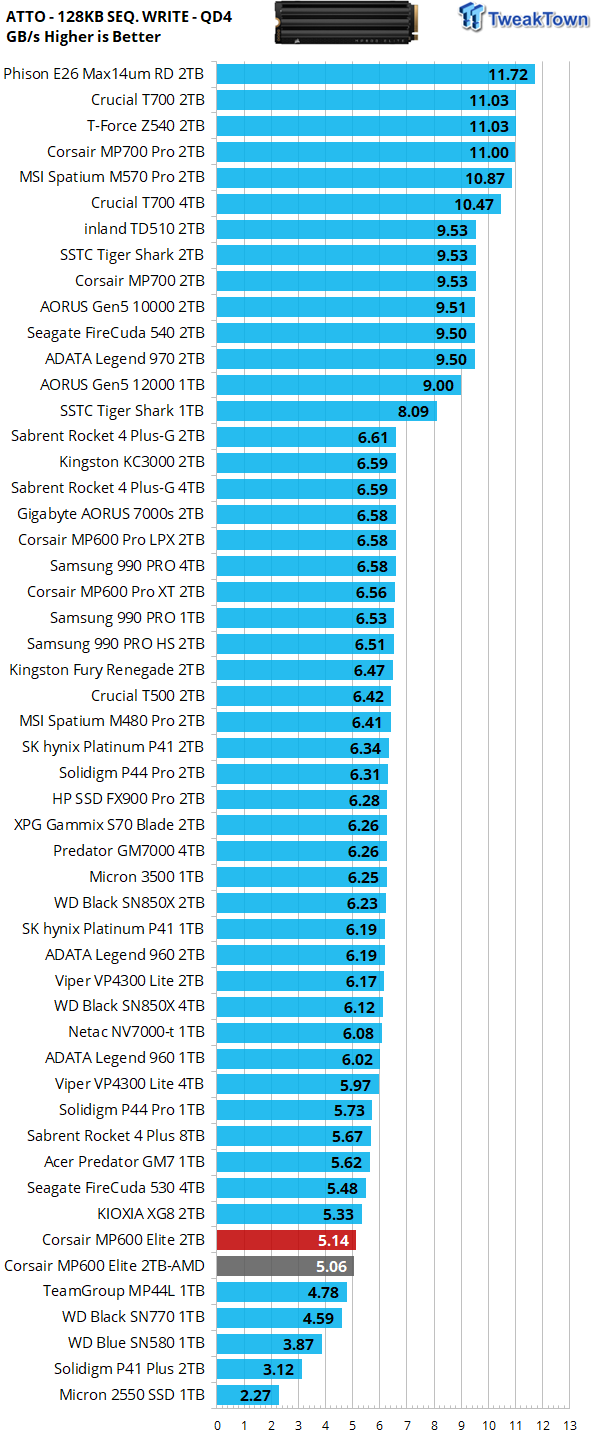
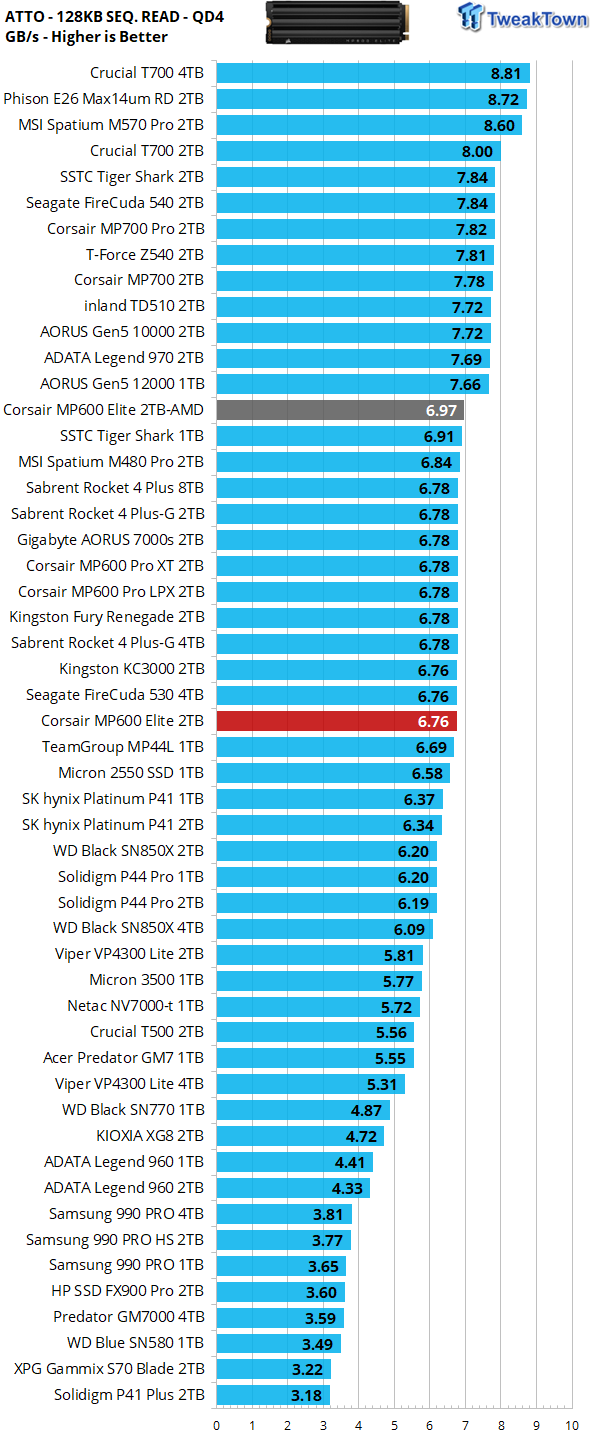
ATTO gives us a clear picture of what transfer sizes a particular SSD favors in terms of sequential throughput. We chart 128K transfers. At a queue depth of four, the 2TB MP600 Elite favors sequential transfers of 128MB or larger when serving data to the host (reading) and 64K or larger when programming (writing) data. This is exactly where we want to see throughput peaking from any SSD. Excellent.
Real-World Testing: Transfers, 3DMark SSD Gaming Test, PCM10 Storage
Transfer Rates

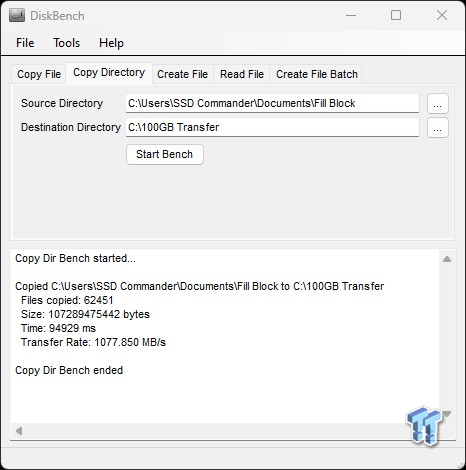
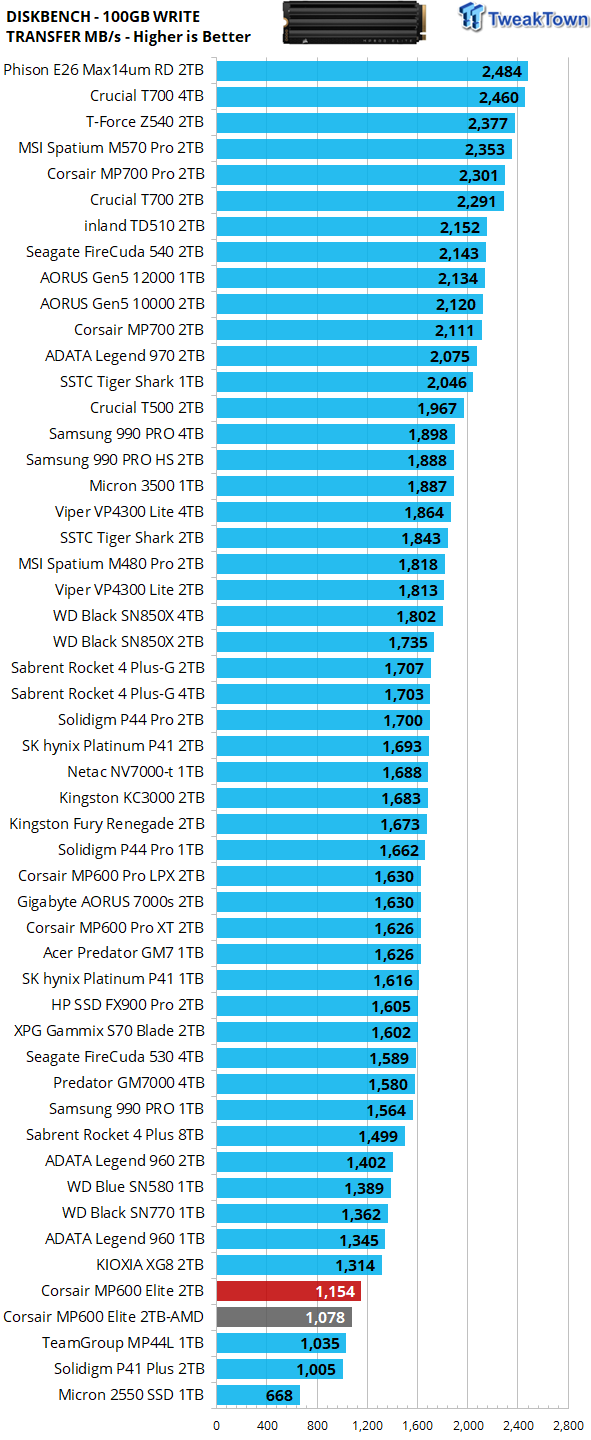
Our 100GB data transfer test is not your ordinary 100GB of data. Ours is a crushing mix composed of more than 62K files. Write performance, random or sequential, is an infrequent operation, and as such, we do not consider it to be an important performance metric in the consumer space. An example being how many times is a game installed vs. how many times it's played.
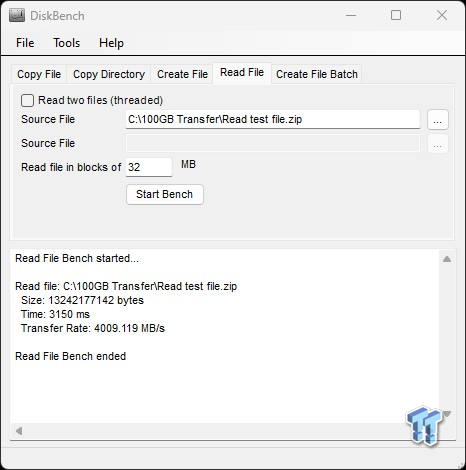
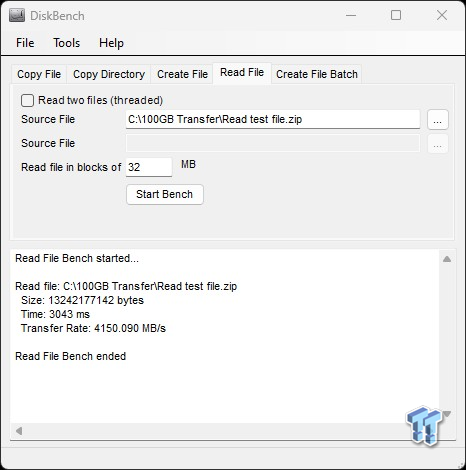
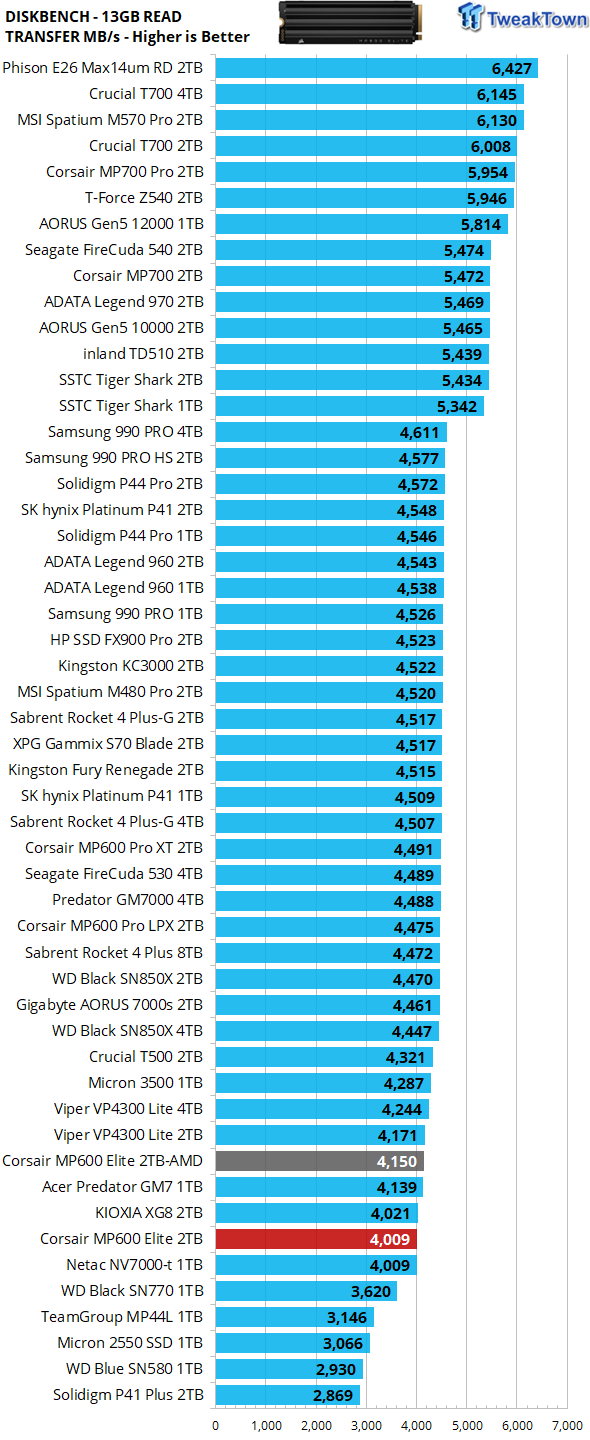
Unlike programming (writing) data, serving data to the host (reading) is always an important performance metric as it relates to the consumer space. Throughput here is essentially equal to its Chinese-made counterparts, so it is good enough as we see it.
3DMark SSD Gaming Test
UL's newest 3DMark SSD Gaming Test is the most comprehensive SSD gaming test ever devised. We consider it superior to testing against games themselves because, as a trace, it is much more consistent than variations that will occur between runs on the actual game itself. This test is the same as running the actual game, just without the inconsistencies inherent to application testing. In short, we believe that this is the world's best way to test an SSD's gaming prowess and accurately compare it against competing SSDs. The 3DMark SSD Gaming Test measures and scores the following:
- Loading Battlefield V from launch to the main menu.
- Loading Call of Duty Black Ops 4 from launch to the main menu.
- Loading Overwatch from launch to the main menu.
- Recording a 1080p gameplay video at 60 FPS with OBS (Open Broadcaster Software) while playing Overwatch.
- Installing The Outer Worlds from the Epic Games Launcher.
- Saving game progress in The Outer Worlds.
- Copying the Steam folder for Counter-Strike Global Offensive from an external SSD to the system drive.
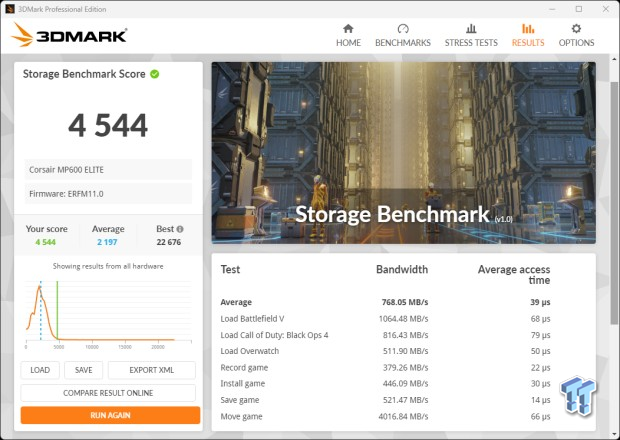
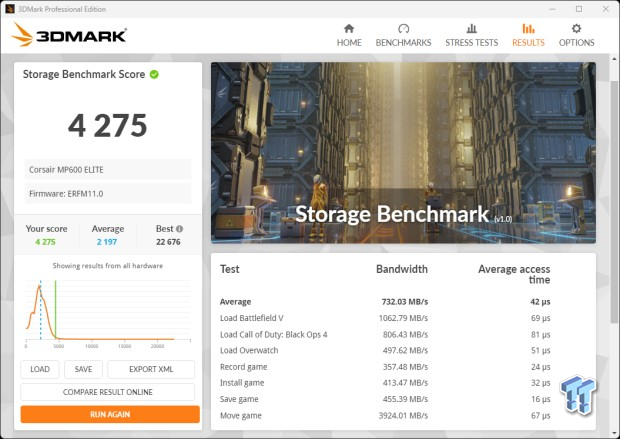
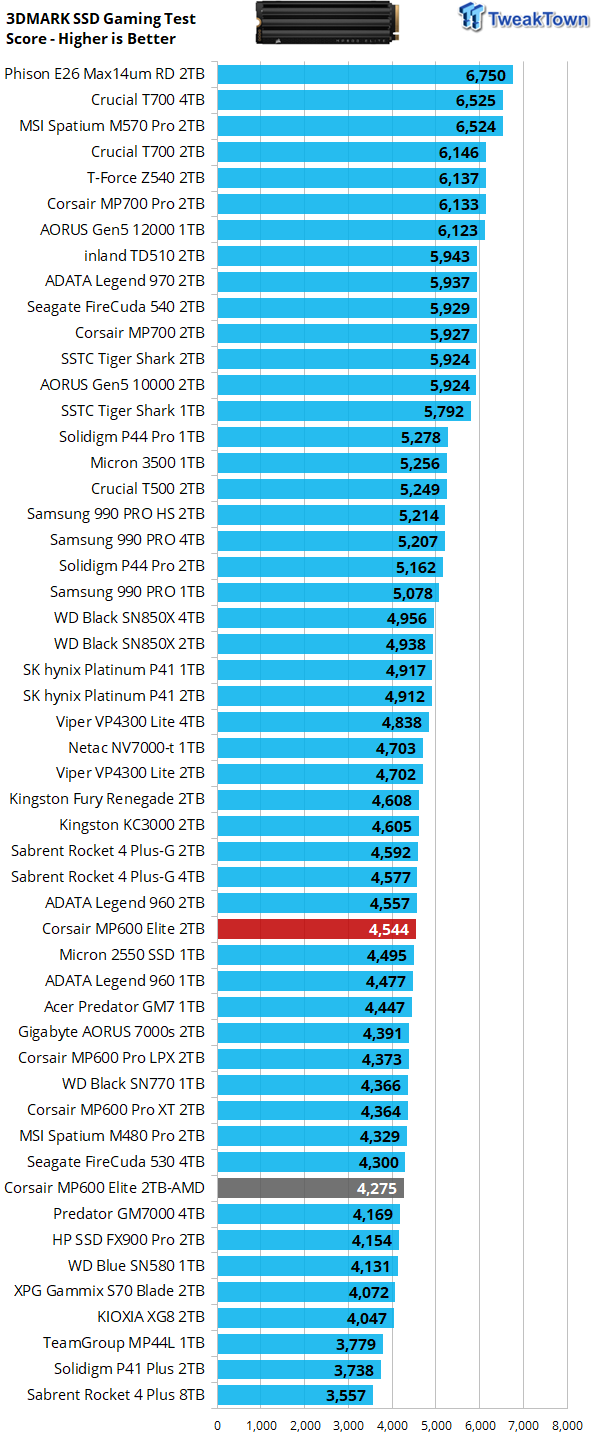
Gaming is a performance metric that matters to most DIY consumers, especially for the enthusiast crowd that TweakTown caters to. With a score of 4,544, Corsair's 2TB MP600 Elite delivers very well; in fact, the best ever for any PCIe Gen4 SSD made by Corsair. Additionally, and worthy of mention here is the fact that all E26 controlled SSDs come with Phison's exclusive I/O+ DirectStorage optimized technology baked right in. With it, a properly equipped PC can load up to 60% more gaming data with 99% less CPU utilization. Amazing.
PCM10 Storage Tests
PCMark 10 Storage Test is the most advanced and most accurate real-world consumer storage test ever made. There are four different tests you can choose from; we run two of them. The Full System Drive Benchmark and the Quick System Drive Benchmark. The Full System Drive Benchmark writes 204 GB of data over the duration of the test. These tests directly correlate with mainstream user experience.
PCMark 10 Full System Drive Benchmark
This test writes 204GB data and covers a broad range of common consumer tasks, including booting Windows 10, file transfers, Adobe and Office applications, and startup times for games including Battlefield V, COD Black Ops 4, and Overwatch. Unlike synthetic numbers, this is comprehensive real-world data, which is why we use it to rank SSDs in terms of user experience.
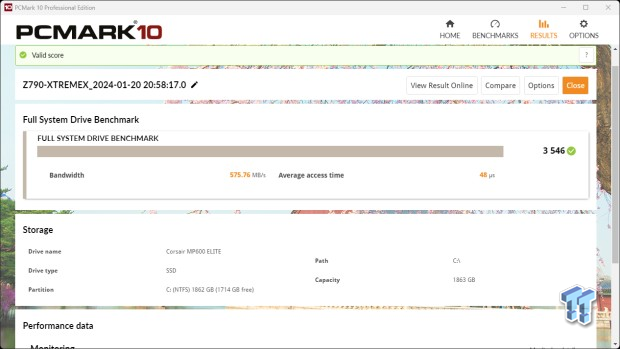
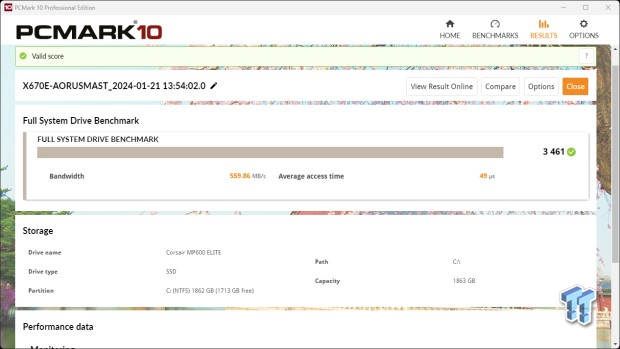
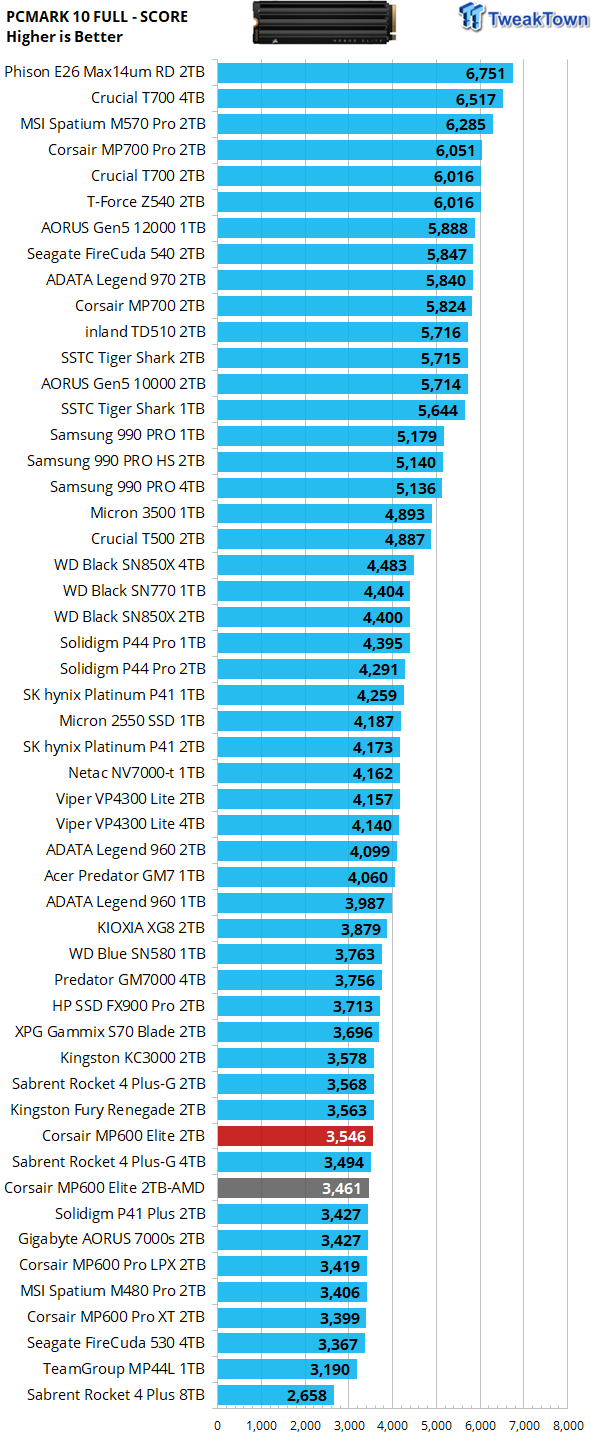
Although a bit slower than its Chinese-made competition here, it again delivers the most for any Corsair-made PCIe Gen4 SSD.
PCMark 10 Quick System Drive Benchmark
The Quick System Drive Benchmark writes 23 GB of data over the duration of the test.
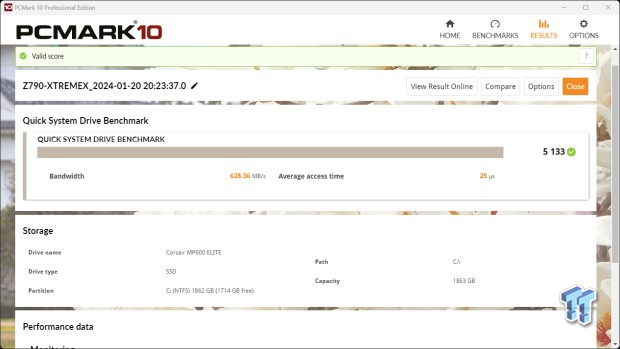
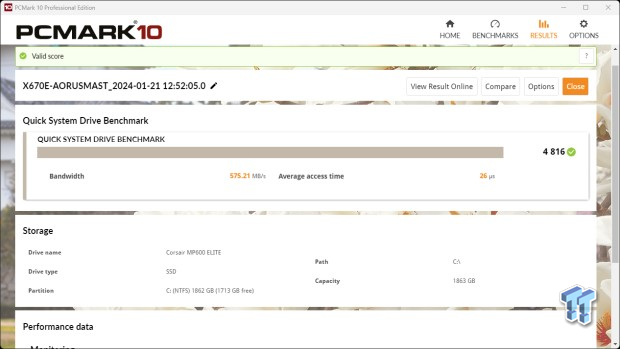
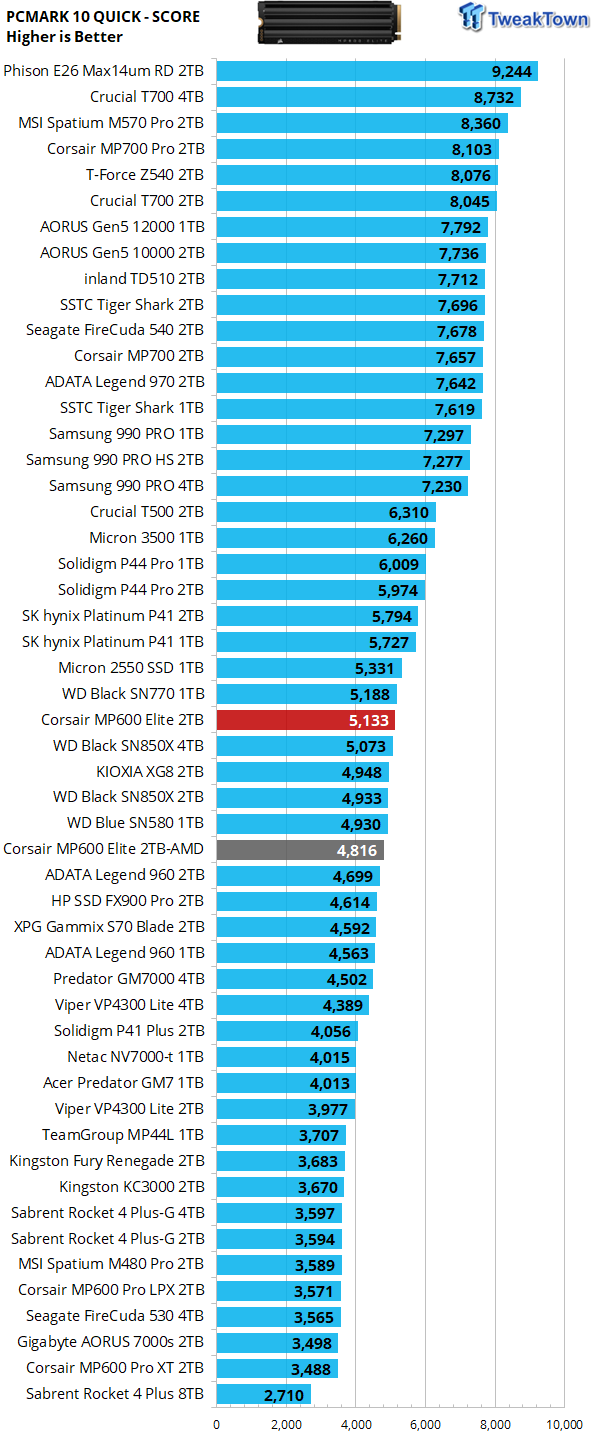
We consider 5K+ here a milestone of sorts, especially for a PCIe Gen4 SSD. Of all the tests we run, we consider this one to be the best reflection of a typical consumer user experience. Here is where we find our test subject demolishing its Chinese-made competition. Corsair's MP600 Elite 2TB delivers the third most here for any DRAMless consumer SSD we've tested to date, only outperformed by Micron's OEM 2550 and WD's SN770 1TB. However, we will take the MP600 Elite over either of those two drives because its throughput at up to 7,400 MB/s makes it more versatile, including for use as PS5 M.2 storage expansion.
Final Thoughts
Corsair has done a magnificent job with its MP600 Elite 2TB. This DRAMless drive powered by Phison's new and awesome E27T controller gives us everything we want from a PCIe Gen4 SSD and does so with efficiency and versatility. Exactly what we value most highly from a mainstream value offering, whether it's employed as a boot drive, dedicated gaming drive, or PS5 storage expansion, this drive will deliver a top-notch user experience worthy of your hard-earned cash.
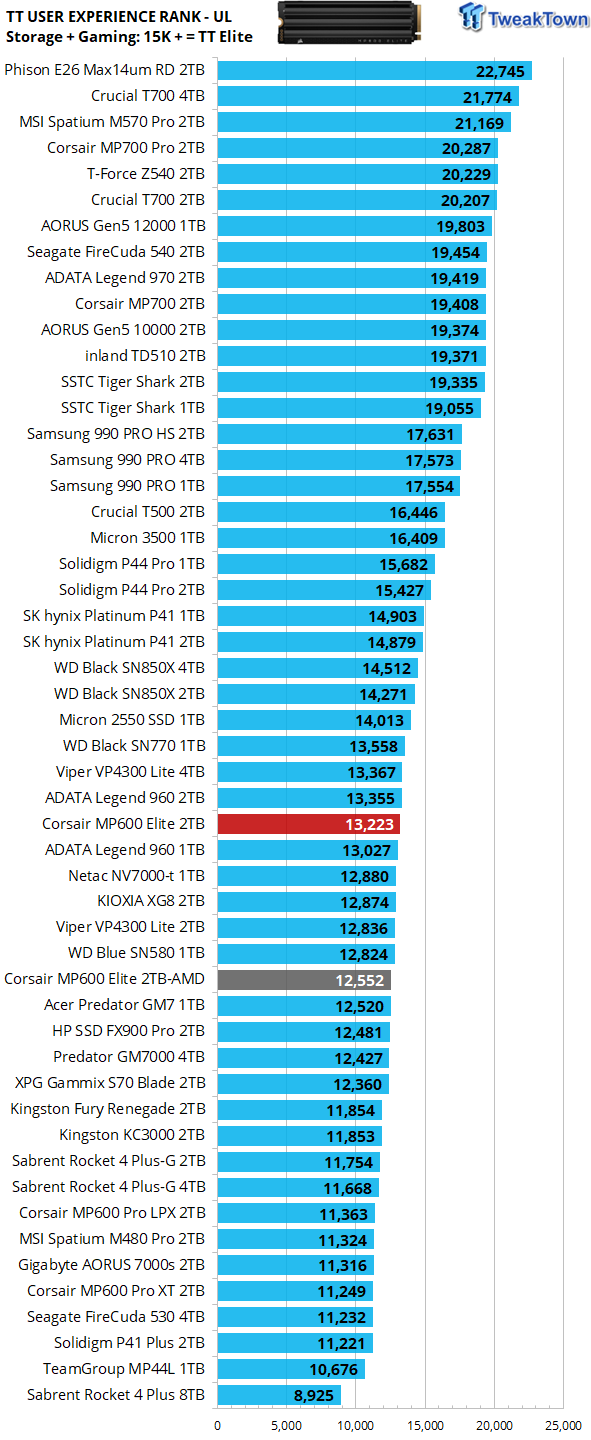
We rank SSDs in terms of overall user experience (performance where it matters most) as expressed by PCMark 10 storage and 3DMark gaming storage tests. We considered a user experience score of 15K or more to verify an SSD as a TweakTown Elite performer. As shown here, Corsair's MP600 2TB is the overall highest-performing 2TB DRAMless SSD we've tested to date. Impressive.
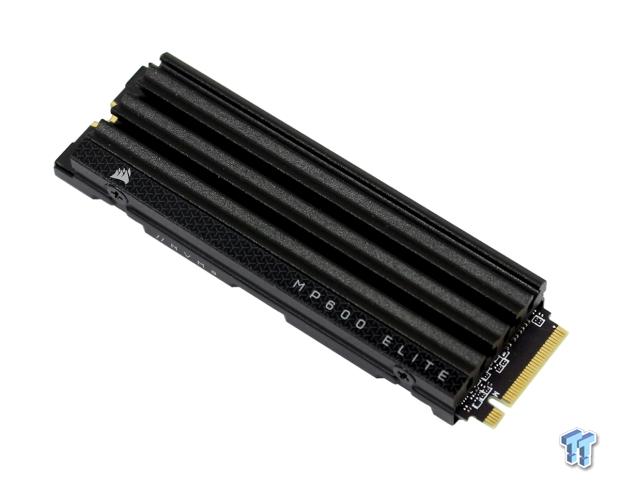
It's the highest-performing PCIe Gen4 SSD Corsair has delivered to date. It's the best-performing 2TB DRAMless SSD we've tested to date and, as such, well deserving of one of our highest awards.

